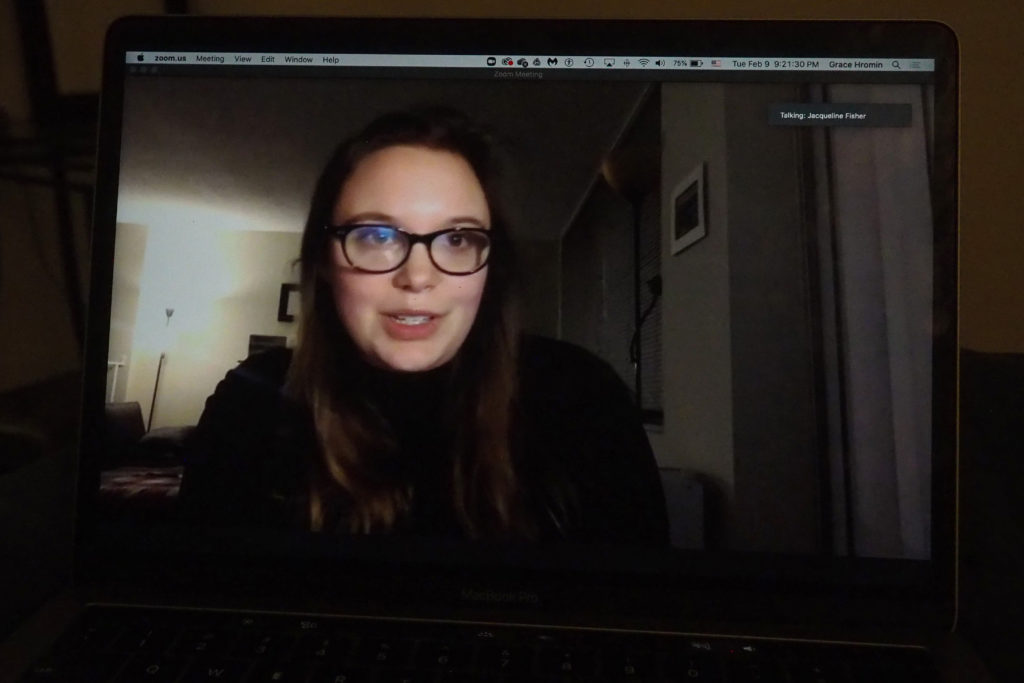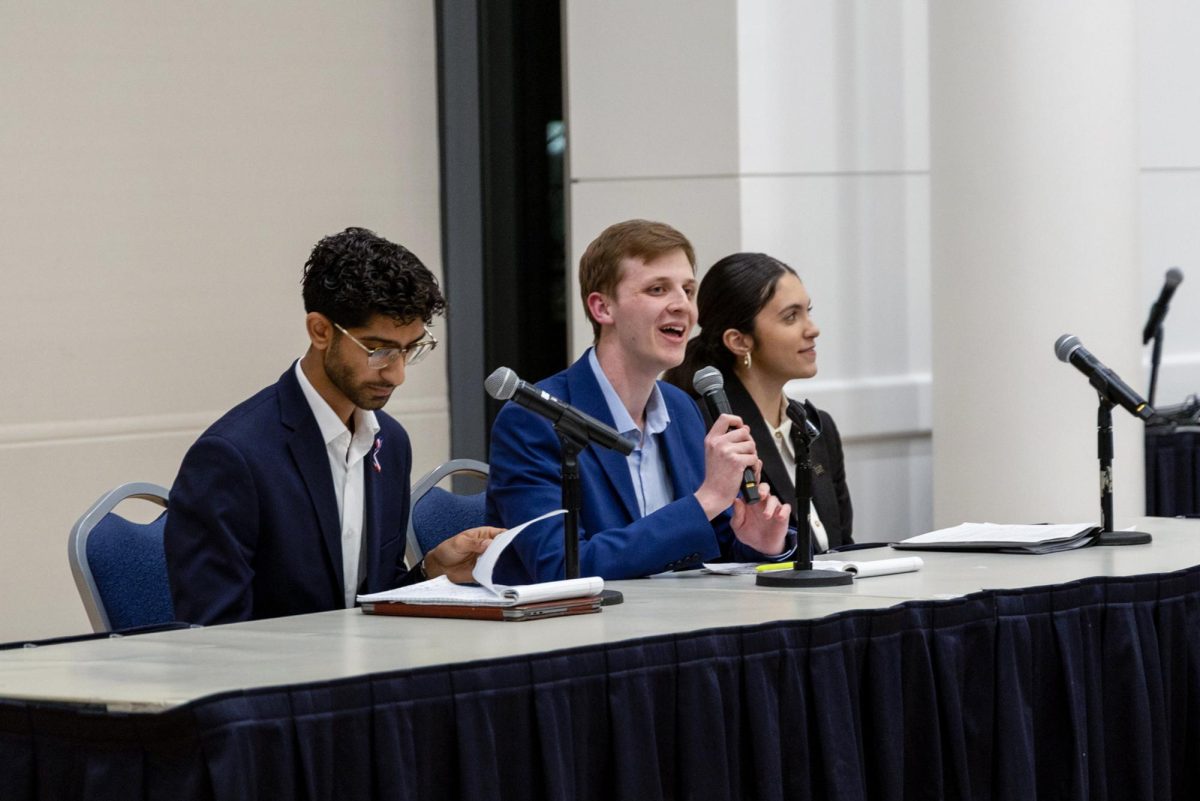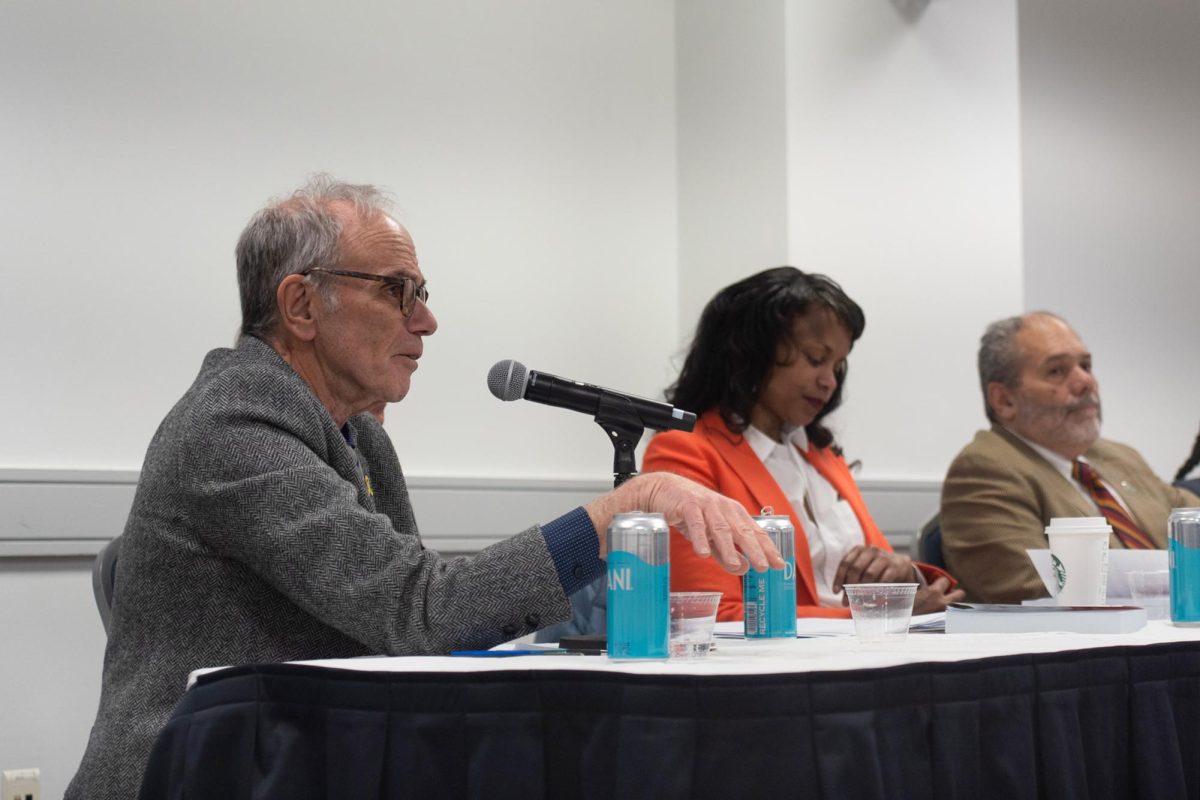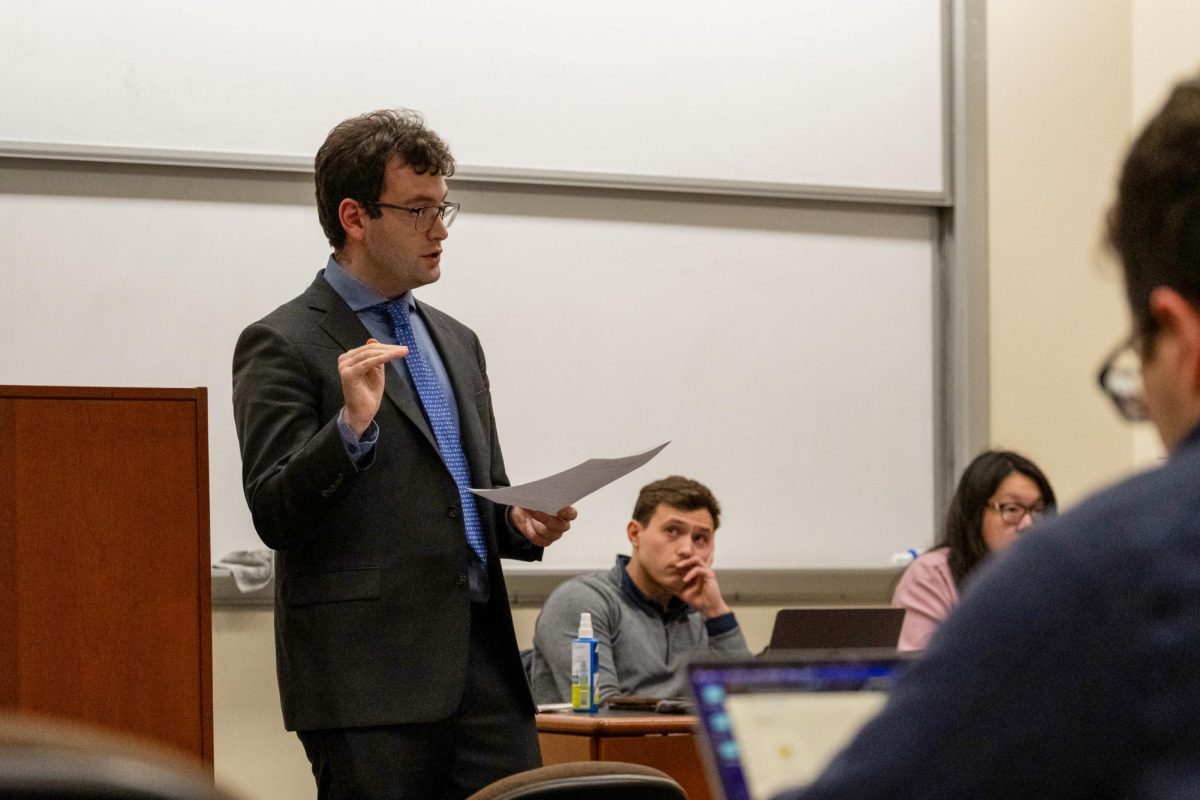The Student Bar Association Senate unanimously approved five pieces of legislation at its meeting Tuesday, allocating money to a fund that provides financial assistance to law students for expenses, like transportation and rent.
Senators passed legislation to provide $10,000 to the Student Assistance Fund and to temporarily eliminate the requirement for student organizations to host a fundraiser during the spring semester. Senators also voted to continue election rules enacted amid the COVID-19 pandemic for the body’s upcoming spring elections and called on officials to increase the permissible number of Credit/No Credit courses transfer students can take at GW.
SBA President Jackie Fisher said in her opening remarks that the senate should allocate funding to the Student Assistance Fund now, instead of waiting to use leftover funds at the end of the year, to meet students’ “urgent” needs that have surfaced in light of the pandemic. She said the fund, administered by GW Law’s Dean of Students Office, has allocated money to more than 100 students for needs, like rent and utilities, office equipment and transportation expenses.
“As we all know, the financial hardships that our students have dealt with have been substantial,” Fisher said.
SBA Sen. Joshua Gilmer, the chair of the finance committee, said the fund has been “an absolute incredible resource” for students during “these difficult times.”
The body also unanimously passed an act that prohibits the SBA finance committee from considering organizations’ “lack of spending” during the 2020-21 academic year when drafting their budgets for the next academic year.
Gilmer, a sponsor of the bill, said SBA bylaws require that each law student organization hold a fundraiser each academic year to maintain its budgetary standing, but the bill will waive the fundraising requirements for next year’s budget.
“Quite understandably, holding a fundraiser, much less an effective fundraiser in the middle of a pandemic when so many of our students are struggling in especially difficult ways, is not a feasible requirement,” Gilmer said.
Senators unanimously approved a resolution calling on officials to allow transfer students to take an equal number of Credit/No Credit courses as non-transfer students. The resolution also calls on officials to allow transfer students to use Credit/No Credit courses that they did not use in the fall semester.
SBA Sen. Andrew Latham, the sponsor of the resolution, said the goal of the legislation is to place transfer students on “equal footing” with their peers for class rankings. Transfer students are allowed to take eight credits for Credit/No Credit, but non-transfer students are allocated 17 credits for Credit/No Credit, Latham said.
“I highlight this just to show the uneven grounds in which the school administrators have laid out their arguments on,” Latham said. “So this request to extend Credit/No Credit to those transfers who did not opt to use it is a minor request in the face of all the many issues that transfers must deal with.”
Senators also unanimously approved a bill establishing the rules for the upcoming spring elections.
SBA Sen. Adam Manning, a sponsor of the bill, said the legislation essentially reauthorizes the fall 2020 election provisions for this semester’s election. The provisions include eliminating the use of in-person campaign materials on campus and limiting candidates’ use of Facebook groups for their campaign.
The body also unanimously approved the creation of a student-run brief blog for the Latin American Law Student Association, which will seek to introduce topics of diversity and racial equality to the GW community and serve as a platform to promote Latino voices. Students who want to run a blog must submit an application for approval to the SBA’s student organization and charter committee, according to the legislation and the body’s governing bylaws.
SBA Sen. Pavan Patamalla, the sponsor of the bill, said the blog, entitled “LLB,” will highlight international law while creating a platform for students to “embrace” and “enhance the diversity of our GW Law student body.”
“The idea of the blog is to give students from a Latin American background the opportunity to talk about issues that the Latinx community faces in the U.S.,” Patamalla said. “A lot of the legal issues that the Latinx community faces are ones that have touched my family and friends, and it’s important as a traditionally underrepresented group of individuals that we give them this platform.”








